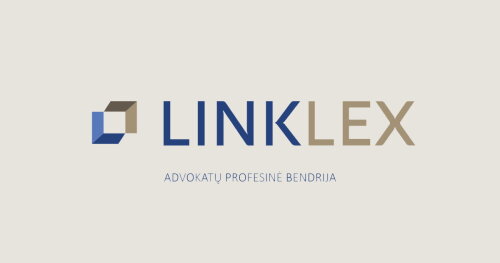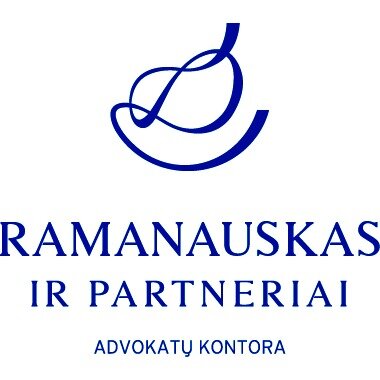Best Private Equity Lawyers in Republic of Lithuania
Share your needs with us, get contacted by law firms.
Free. Takes 2 min.
Or refine your search by selecting a city:
List of the best lawyers in Republic of Lithuania
About Private Equity Law in Republic of Lithuania
Private equity involves the investment of capital into private companies that are not publicly traded on a stock exchange. In Republic of Lithuania, private equity has become an increasingly important part of the economy, supporting business growth, innovation, and job creation. The legal frameworks governing private equity in Lithuania are modern, aligned with European Union policies, and designed to promote both investor confidence and business transparency. From structuring deals and negotiations to exits, the legal landscape addresses the needs of funds, investors, and entrepreneurs operating in this field.
Why You May Need a Lawyer
Engaging in private equity transactions involves navigating a complex web of regulations, contractual commitments, and due diligence. You may need a lawyer in the following situations:
- Structuring or setting up a private equity fund
- Navigating investor agreements or partnership arrangements
- Performing legal due diligence on potential investments or acquisitions
- Negotiating the terms of investment or exit strategies
- Complying with local and EU-related reporting and disclosure rules
- Addressing disputes between partners, investors, or business founders
- Resolving intellectual property, confidentiality, or employment matters related to the investment
- Understanding tax implications of transactions
Local Laws Overview
Private equity activity in Republic of Lithuania is principally regulated by national laws, which are harmonized with relevant European Union regulations. Key aspects include:
- Legal Forms: Private equity investments are commonly executed through limited partnership structures or private limited liability companies, both of which offer flexibility for structuring investments and allocating risks.
- Supervision: The Bank of Lithuania oversees investment funds and asset managers, ensuring transparency and fairness in the market.
- Licensing: Private equity fund managers must be licensed under the Law on Collective Investment Undertakings, particularly if soliciting funds from investors.
- Anti-Money Laundering (AML): Stringent AML and Know Your Customer (KYC) requirements apply to both fund managers and investors to prevent illicit financial flows.
- Foreign Investment: Lithuania welcomes foreign investors, but certain strategic sectors may have additional review processes to protect national security.
- Taxation: The tax environment is generally favorable for private equity, with participation exemptions and other incentives that can reduce the tax burden under defined conditions.
Frequently Asked Questions
What is private equity and how does it work in Lithuania?
Private equity refers to direct investment in private companies or buying out public companies to make them private. Investors and fund managers in Lithuania search for promising businesses, provide capital, and aim to improve performance before exiting with a return on investment.
What are the most common legal structures for private equity funds in Lithuania?
The most common structures are limited partnerships and private limited liability companies. These entities offer flexibility and are recognized by Lithuanian law for private equity activities.
Are there any specific licensing requirements for private equity fund managers?
Yes, fund managers generally must obtain a license from the Bank of Lithuania, especially if they raise capital from multiple investors or operate larger funds exceeding certain thresholds.
How are private equity investments taxed in Lithuania?
Private equity gains are generally subject to capital gains tax, but various exemptions and incentives may apply depending on the holding period and the legal structure used.
Is foreign ownership permitted in Lithuanian private equity investments?
Yes, foreign investors are welcome, but sector-specific regulations may add extra scrutiny for strategic industries such as energy or defense.
What is the process for conducting legal due diligence on Lithuanian businesses?
Legal due diligence typically entails reviewing corporate documents, assessing compliance, evaluating contracts, and examining any legal risks or liabilities that could affect the investment.
What protections exist for minority investors in Lithuania?
Lithuanian law provides several mechanisms to protect minority investors, including statutory rights in shareholder meetings and the ability to challenge unfair decisions in courts.
How are exit strategies structured in Lithuanian private equity?
Typical exit strategies include trade sales, buyouts, secondary sales, or initial public offerings. The precise terms are negotiated in advance and set out in the shareholders' or investment agreements.
What are common challenges faced when investing in Lithuanian private equity?
Challenges can include regulatory compliance, complexities of cross-border transactions, language barriers, and navigating the local business culture.
How can a lawyer assist throughout the private equity investment cycle?
A qualified lawyer provides support during fund formation, regulatory compliance, negotiation of agreements, due diligence, dispute resolution, and advising on exit options.
Additional Resources
Individuals seeking further information or assistance may consider the following resources:
- Bank of Lithuania - Supervisory authority for financial institutions, including private equity funds and managers
- Lithuanian Private Equity and Venture Capital Association - Industry body offering insights and networking for investors and legal advisors
- Ministry of Finance of the Republic of Lithuania - Provides regulations, policy updates, and tax information
- Invest Lithuania - Government agency dedicated to supporting foreign investment and navigating local regulations
- Chambers of Commerce in major Lithuanian cities, which can help with business and legal referrals
Next Steps
If you are considering a private equity investment or are already involved in such activities in Republic of Lithuania, engaging a legal expert is highly recommended. A lawyer specializing in private equity law can help you understand your rights and obligations, avoid costly mistakes, and protect your interests.
Start by identifying a law firm or attorney with experience in private equity and international investment. Prepare relevant documents, clarify your goals, and be open about any challenges you foresee. The lawyer will guide you through local compliance, conduct due diligence, draft and negotiate contracts, and support you in any disputes or regulatory matters.
Taking quick and informed legal steps will boost your confidence and success in the Lithuanian private equity sector.
Lawzana helps you find the best lawyers and law firms in Republic of Lithuania through a curated and pre-screened list of qualified legal professionals. Our platform offers rankings and detailed profiles of attorneys and law firms, allowing you to compare based on practice areas, including Private Equity, experience, and client feedback.
Each profile includes a description of the firm's areas of practice, client reviews, team members and partners, year of establishment, spoken languages, office locations, contact information, social media presence, and any published articles or resources. Most firms on our platform speak English and are experienced in both local and international legal matters.
Get a quote from top-rated law firms in Republic of Lithuania — quickly, securely, and without unnecessary hassle.
Disclaimer:
The information provided on this page is for general informational purposes only and does not constitute legal advice. While we strive to ensure the accuracy and relevance of the content, legal information may change over time, and interpretations of the law can vary. You should always consult with a qualified legal professional for advice specific to your situation.
We disclaim all liability for actions taken or not taken based on the content of this page. If you believe any information is incorrect or outdated, please contact us, and we will review and update it where appropriate.
Browse private equity law firms by city in Republic of Lithuania
Refine your search by selecting a city.














